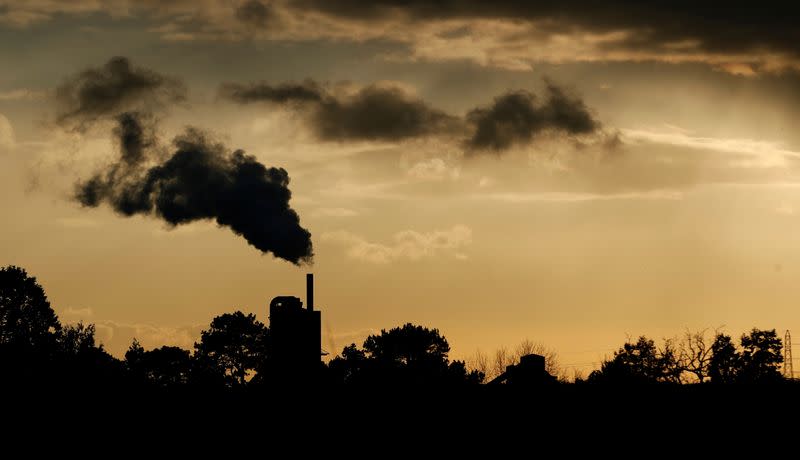Britain to spend $1.4 billion to cut carbon emissions from industry, hospitals

By Susanna Twidale
LONDON (Reuters) - Britain plans to invest 1 billion pounds ($1.39 billion) to cut emissions from industry, schools and hospitals, it said on Wednesday, as part of wider "green revolution" designed to create thousands of jobs and meet climate targets.
Britain has a target to reach net zero carbon emissions by 2050 and is also seeking to boost jobs and repair economic damage caused by the effects of the coronavirus pandemic.
“Today’s plans will make a considerable dent in the amount of carbon emissions emitting from our economy and put us on the path to eliminate our contribution to climate change by 2050,” Business and Energy Secretary Kwasi Kwarteng said a statement.
The measures will create and support up to 80,000 jobs over the next 30 years and help the country cut emissions from industry by two-thirds in 15 years, the statement said.
Some 932 million pounds will be directed to 429 projects across England to help reduce emissions from public buildings such as schools, hospitals and council buildings through low-carbon schemes like energy-efficient insulation, low-carbon heating systems, installing solar panels and efficient lighting.
A further 171 million pounds will be allocated to nine projects in Scotland, south Wales and North West, Humber and Teesside in England to help decarbonise industry such as projects to capture store and use carbon emissions and projects to use cleaner fuels such as hydrogen.
“The Industrial Decarbonisation Strategy will send a clear signal to the market by setting out how the government expects decarbonisation to happen, while improving investor confidence,” Kwarteng said.
Prime Minister Boris Johnson last year announced a "green revolution" which he said will mobilize a total of 12 billion pounds of government money and create 250,000 highly skilled green jobs by 2030.
($1 = 0.7194 pounds)
(Reporting by Susanna Twidale; Editing by Lisa Shumaker)

 Yahoo Sport
Yahoo Sport 





































